HOW DO YOU BECOME A...
Sound Artist

This month we talked to the fascinating sound and visual artist, Odette Johnson (aka Museleon)
A self-taught Audio and Image artist living and based in Sunderland, Museleon has been creating both sound and image works for over 20 years
we will be doing interviews with working-class creatives and how they got into the arts. These interviews will give other creatives an insight into the art world, the positives and negatives This gives you a chance to ask curators, directors, artists, musicians and anyonee else who wants to talk about how they got into working in the arts and why they do it.
For me, ‘unconventionally, non-linear and it took a very long time and with no career ’ , would be the honest answer to this question but unfortunately, an answer that many working-class artists would answer in similar ways
If you wish to make sound your career then you probably need to go down the normal routes of education, training courses or specific pathways with specialised organisations, either in music technology, production methods, radio and podcasting, sound art or music itself. However, I never had this and so, although I have a huge body of work in sound and image, I am an outsider on the fringes, creating pieces purely for the love of it and in a very ad hoc way with limited outlets I have no formal training or qualifications in either art or sound work and am self-taught, which has its benefits as well as drawbacks
Let me tell you a story
Born in the 1960s in Cardiff, South Wales, the first thing I have to say is that if you were a girl who was labelled as different’, difficult’, odd’ and ‘feral’, rather than now, where I would have probably been assessed as neurodivergent, your options were restricted, although, these were limited for girls anyway from my background School was hard but art, music and English were lights and my favourite things to do, not with any encouragement from teachers or peers. They are the foundations of a lack of self-belief, self-doubt, low self-esteem, imposter syndrome and feeling that I, a workingclass girl couldn't, and shouldn't, be part of the art scene, leaving long-lasting consequences All this meant that at school, I just gave up notions of being a creative person, which lasted a very long time
I have always loved culture, listening to the radio, going to gigs, reading, and seeing exhibitions but expressing my creativity was never an option I always had creativity in the back of my mind but with the costs of technology in the 70s/ 80s this was inaccessibility to me In the late '90s, my father gave me money for Christmas and I could afford a Yamaha PSR. It had the facility for inserting a cartridge and you could play along to the backing track and that’s how I got into playing music more It also had some very basic sound synthesis like tremolo and a few sfx sounds You could make a tune out of a dog bark but this strange process, the synthesis of sound, led me to my first synth
My love of synthesisers stems from 50's sci-fi movies and Telstar by The Tornados Also, when I was at college, the ’80s was the boom decade for synth bands and I was listening to a lot of them. Synths were everywhere and I loved the sounds and thought one day I’d like to have one Little did I realise that I would have to wait until I was in my 40s to eventually get one, a Korg N5
Always a hobby, I was encouraged but my husband to write and record my work. I was a ‘housewife’ and a mother and then a carer, but I had time during the day to sit, write and record my music It was my husband who motivated me to look at what I had created and what we could make from this collection of tracks I’d written and recorded and he got them to a standard, mixing and mastering them and it was he who encouraged me to consider sending the original collection.
My first album 'Soundician' was released in 2000off to radio shows and reviewers in the US and Europe Since everything was ‘in-house’ production, I also created the artwork, although due to high printing costs, this was inside the CD insert ( all before digital platforms and distribution) and originally our physical cdr discs had white covers This was aesthetically different from other releases in our genre, so we stood out but also, we couldn't compete with the labels on production costs, so we made it a ‘thing’ Also, people were intrigued with the look as it didn't give pointers to the sounds inside. Everyone knew a Soundician release by the look and I think this helped Ultimately, with digital distribution, I could add more colour and complexity to my digital artwork, which accompanies my sound work

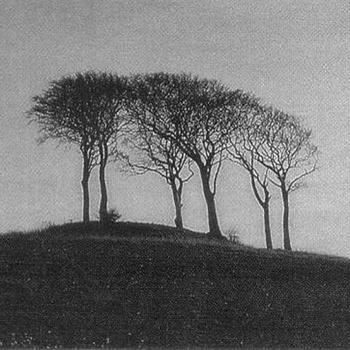
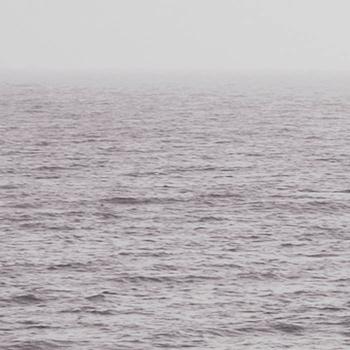

While there were opportunities to make a career and a living out of music for some, this was usually in traditional genres and instruments. As it was the very early days of digital distribution and with the local electronic/experimental scene being underground or non-existent and I was a woman in her 40s with responsibilities, the career never materialised and Soundician ended up as a serious hobby, which I did in between juggling childcare, caring and home. In all honesty, this scenario hasn't changed
Pretty quickly I realised I was never going to make a living out of music but I continued to, and still do, create music / sound work purely for love and enjoyment There were successes after Soundician, such as the winner of the Best Electronic Album for ‘Seven Sisters’ in 2004 in the New Age Reporter Awards in the US ( Seven Sisters | SOUNDICIAN (bandcamp.com) and nominated the following year for ‘Memorophilia’ ( Memorophilia | SOUNDICIAN (bandcampcom) and there are 16 releases, but I think it was thwarted by the wrong place and time syndrome Life gets in the way as well, especially when you have caring responsibilities with limited or no support. Finally, due to health issues for us both and the painful realisation that it was never going to be more than it was, ‘Evensong’( Evensong | SOUNDICIAN ) was the last release in 2018.
By this time sound and art were so integrated into my life that somehow I knew I had to carry on in some way. The huge developments in technology and the connections online have enabled me to develop my passion in a more online setting These changes have also enabled Museleon (muse + chameleon) to exist, a project that is solely me, experimenting more, trying things out and more in the box, with computer and software and producing it myself.
“I'm a workingclass girl who eventually took a traditional path, albeit slightly wavy, and didn’t get the breaks that are more available now. ”
What finally gave me a push was the Tyneside Sounds Society ‘King's Speech’ call out The whole process of taking a field recording or sample and making something new out of it, in this case ‘Surface’ (Stream Museleon - Surface by Tyneside Sounds Society | ) was what I wanted to do.
One of the main methods I use is to take one field recording, solely as the basis of the track I am creating, reimagining the sound into something else, by deconstructing and rebuilding a sound to make pictures out of it, such as field recordings of mud volcanoes into a Japanese yokai ( Haradashi | Museleon (bandcampcom) or Newcastle Civic Centre Carillon Bells 1967 into a rather large glass of gin and tonic, complete with floating cranberries and bubbles galore. (TONIC –Museleon) Within my sound works, I use a range of field recordings and found sounds and hardware with minimal processing, as I’ve always been interested in how sound can morph into beautiful complex patterns with the limited use of tech and processing It’s the ‘small sounds’, anomalies, mistakes, chance accidents and the sounds ‘between’ that catch my ear Sometimes something ugly can be transformed into something beautiful. You could say that I paint audio pictures with sound, as a painter does with paints, such as an Athens flushing toilet becoming crashing waves in 'Mondrian Seas’ (CITIES AND
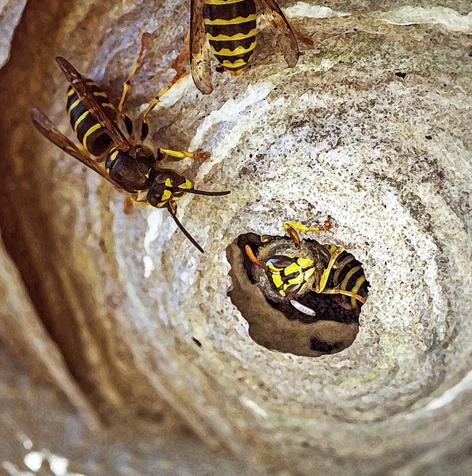
My CV is unstructured and out of sync, non-formal and non-traditional. This also probably partly explains my being ‘ unseen ’ Nevertheless, it's not all negative, if it was, I would have given up a long time ago and there have been several personal achievements and highlights, despite things, many of which you can read about and listen to on my website (wwwmuseleoncom) One of the benefits of the rise of the internet has meant that I can access communities outside the local area where sound can be more easily sent and ‘displayed’ and over the years there have been a few online projects that have call-outs which I have regularly submitted pieces to, such as Cities and Memory, World Listening Day, Radiophrenia, The Dark Outside, Lone Women, Radio Spiral or Music Weeklies This has enabled me to have some focus and at times a deadline to meet, which helps concentrate the mind.
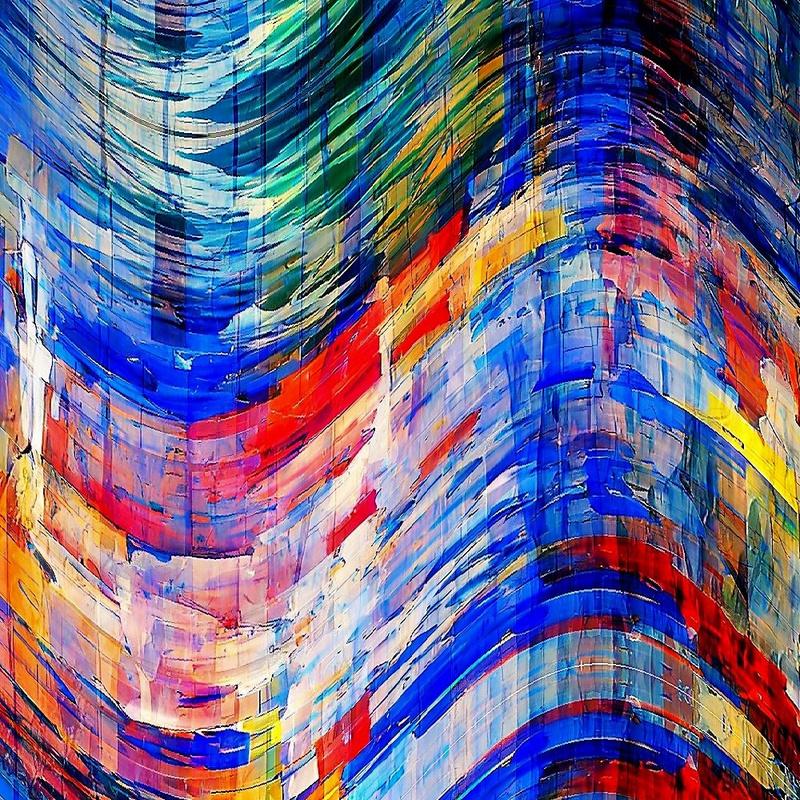 Artwork for CITIES AND MEMORY – OBSOLETE SOUNDS
Artwork for WORLD LISTENING DAY 2019 – NEST
Artwork for CITIES AND MEMORY – OBSOLETE SOUNDS
Artwork for WORLD LISTENING DAY 2019 – NEST
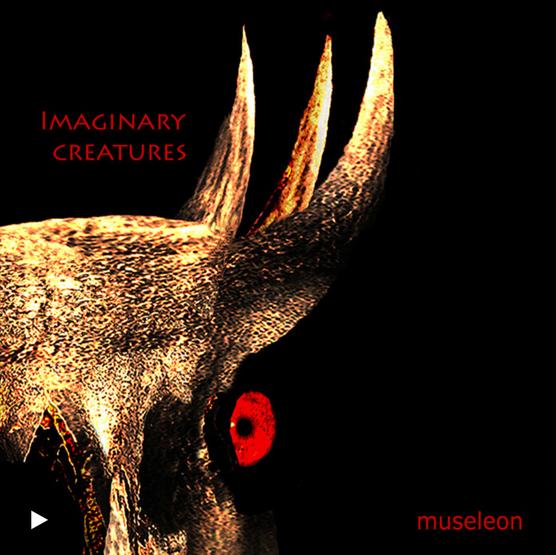
My journey towards becoming an audio artist has not been a straightforward one For clarification, although I create audio art and some would classify me as an audio artist, I have never had a career in the usual sense and have found it very difficult to access the formal pathways I haven’t had shows, been commissioned or made a living out of my sound work Consequently, at times, I think it has been dismissed as not being serious art or music or for that matter, that I am not serious about my work, but this ignores all the factors that have had an impact on my visibility or rather lack of it, which I think is a common experience for many like me
There are benefits creatively from having no formal training or qualifications in either sound or art, as I have developed my own personal style and sound canvas but as I mainly create things using sound as my ‘paint’, as an equivalent to a visual artist would use oils and pastels, I think, for many reasons, it has made it very difficult to classify what I do and for others to understand it.
When I started, the local scene was predominantly and still is centred but not solely on guitar bands, solo singer-songwriters and gigging and is still very much youth and /or male-orientated. This is an issue if you happen to be a woman in her 60s who makes eclectic idiosyncratic electronic sound pieces that straddle arthouse and audience accessibility Within electronic music communities, I have also met with scratching of heads as to where I fit in, as the music scene is either genre that I don't fit into easily, is subdivided into serious academic abstract experimentalism or beat-driven sounds, neither of which I fit into, is academic and part of a structured course which I am not part of, or is heavily geared towards performance which has not been accessible to me due to time, costs, travel and responsibilities Galleries have tended to focus on traditional visual art or where sound is considered secondary, problematic or as Sound Art which is generally very academic and/or abstract in theme and not wholly what I do
Before easy access to the world online, everything was in person and if your audience was outside of the area or the country, then it was nigh on an impossibility if you were independent and not associated with a record label It was difficult to travel with a small child and gigging with a load of electronic gear was also problematic, with very few specialised venues or a scene in the UK or locally, let alone the cost of it all
Radio shows that played Soundician were ambient, chill, and new-age and I feel these genres of electronic music were looked down on in the UK, less so now. So, although I found small pockets of interest in Europe, it was mainly America and college radio that were interested I think in the end I was not cutting edge enough for the UK / European scene but at times too radical for the American taste I don’t think this has changed much, where my sound world tends to straddle the two.
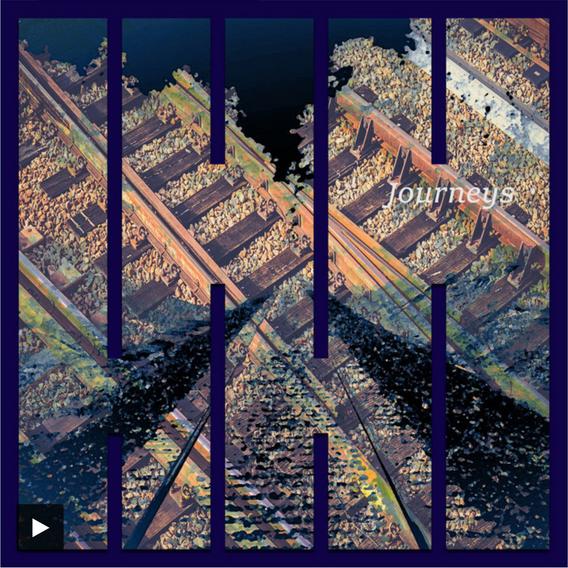
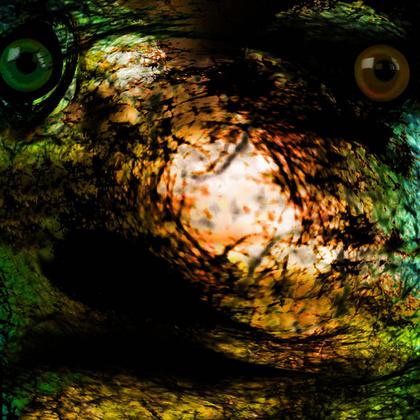
Of course, it’s not all about outside forces, there are other reasons why my career never quite took off Motherhood was one and being a carer, both of which not only have their financial implications but also practical difficulties which are not generally understood or accommodated by the wider world Also, personality has had some impact, which is both inherent and acquired over the years I'm a pretty reticent person and even now I’m not great at social gatherings, self-publicity or talking about what I do, skills needed for networking, self-promotion and social media Perhaps it stems from the years of quietly absorbing negative labels and also the female stereotypes and messages (that are still prevalent ) from school, media and personal experiences. I'm a working-class girl who eventually took a traditional path, albeit slightly wavy, and didn’t get the breaks that are more available now Right person but the wrong place and time and it was a very long time before I considered sound as something I wanted to do or could do Luckily, being a selfstarter, being motivated, self-commissioning, and in some way believing in my art, has helped and if you look at the body of work, then it's not all failure and I'm proud of it.
I feel that I need to differentiate between Sound Art and Audio Art For me, audio art best describes what I do, as Sound Art has strong connotations associated with gallerybased conceptual work and what I do is that I take sound as a medium, like paint and create pictures and stories with it, which I hope is accessible and understandable That's not to say it's ear candy or not as thoughtful and ideas-based as sound art but unfortunately, the concept of sound as an art medium seems to be difficult to understand for people It's not usually what they expect me to say when they ask “What type of artist are you?”
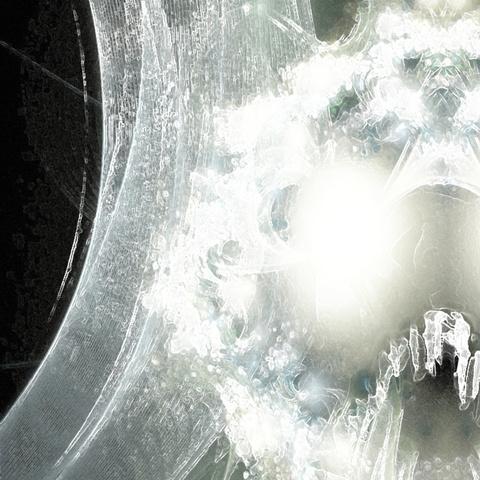
I would say yes to this but I am well aware that the medium of sound is a difficult medium to present and due to the technology needed, is also expensive, especially for small independent galleries I think galleries are happier with traditional mediums, such as paint or sculpture, as it are easier to install, cheaper, you can sell and let's be honest, more accessible to a modern audience, who can whip past quickly and say they've seen the show Again, this fits in more easily with the quick flick-through culture we now have, where people scroll speedily through their feed and can fleetingly look at artwork en masse. Sound, however, it is presented, demands time from the listener There are sound clips but generally the sound works that I create do demand you give it a listen longer than a few seconds and because much of it is sound and noise rather than tunes, it is seemingly less accessible and does demand a little more from its audience
Consequently, many people who work with sound have to adapt to get their work to the public, either by creating what the galleries want and deem as art, creating primarily visual work where sound is secondary, finding new and different venues such as churches, warehouses or outdoor installations or they use visual elements such as video, projections, light shows or in my case digital artwork to front the sound
The answer may be a specialised gallery whose oeuvre is solely sound.
If you ' ve got this far in this article, then you probably would see that, for me, all three have had an impact and at times, often in connected ways They are all as important as each other and are intertwined often with a domino effect
Firstly, a major problem for me is the medium of sound itself, as it is not generally seen as a medium It has associations with background or secondary noise It’s Muzak It permeates everything As I have already said, it cannot be easily contained or displayed and it has several preconceptions. To use sound as my major medium is unusual and as such seems to be a difficult concept for some Whenever I’m asked “What do you do?, people, gatekeepers and other artists themselves usually respond with glazed eyes and seem nonplussed
Secondly, my working classness, so to speak, has had hidden and long-lasting effects Some are historical and cannot be changed for me now - the school I went to, the low expectations, the fairly rigid and limited pathways that were set out, the lack of role models and money to be able to do things Was there institutional bias? Probably Have things changed? I suspect not, especially when you need to have organisations like Pink Collar Gallery advocating on working-class artists' behalf Things do seem to be better but it is still not an even playing field The difficulties that I experienced are still here, such as the right school and university, the need for the traditional routes to study, qualifications to prove you are an artist, traditional methodologies and thought and so on.
As a woman and especially as I get older, doors seemingly shut. I have experienced open hostility and subversive backhanded misogyny The boys club still rules ( Misogyny in music - Women and Equalities Committee (parliamentuk 2024 ) Some spaces feel unsafe and are not set up for lone women in attendance Interestingly, I recently watched an article about the Guerilla Girls on their fortieth anniversary. When they started in the 80s, their focus was on the patriarchy and its underlying control of large group exhibitions, where nearly all the names on the roster were men and it also got me thinking about the electronic music scene, and the music business as a whole, which is still predominantly controlled by men Without fail, every year there are articles written decrying the fact that summer festival lineups are crammed with men and female headliners are practically non-existent.

I suppose it's one reason I set up my blog Feminatronic, to at least be one of the many sites that say “ we ' re here”, and there are a lot of us creating electronic music around the world in many genres. My side project for the last 10 years is an effort to shine a light on those who selfidentify as female, trying to break down the perceptions of who an electronic music producer is. However, as the Guerilla Girls reiterated themselves, despite genuine movements towards equality of access and visibility and a huge plethora of groups and organisations set up to increase the visibility of women in the arts and music, the lineups, playlists and promotions are still heavily male-centred.
This is a very personal journey and told from the position of someone who maybe, time-wise, grew up in a different world However, unfortunately, some of this will ring true to some, as these are still some of the realities we face as artists who come from outside the usual inner circle It's added baggage that can seemingly hold us back Yet, I'm still doing this after all this time, despite, and in spite of, the many barriers I have cited Sound as a medium is a beautiful thing, it has infinite possibilities and it can spark the imagination and play on your emotions. It is, after all, art
0 8
Artwork for Tonic

